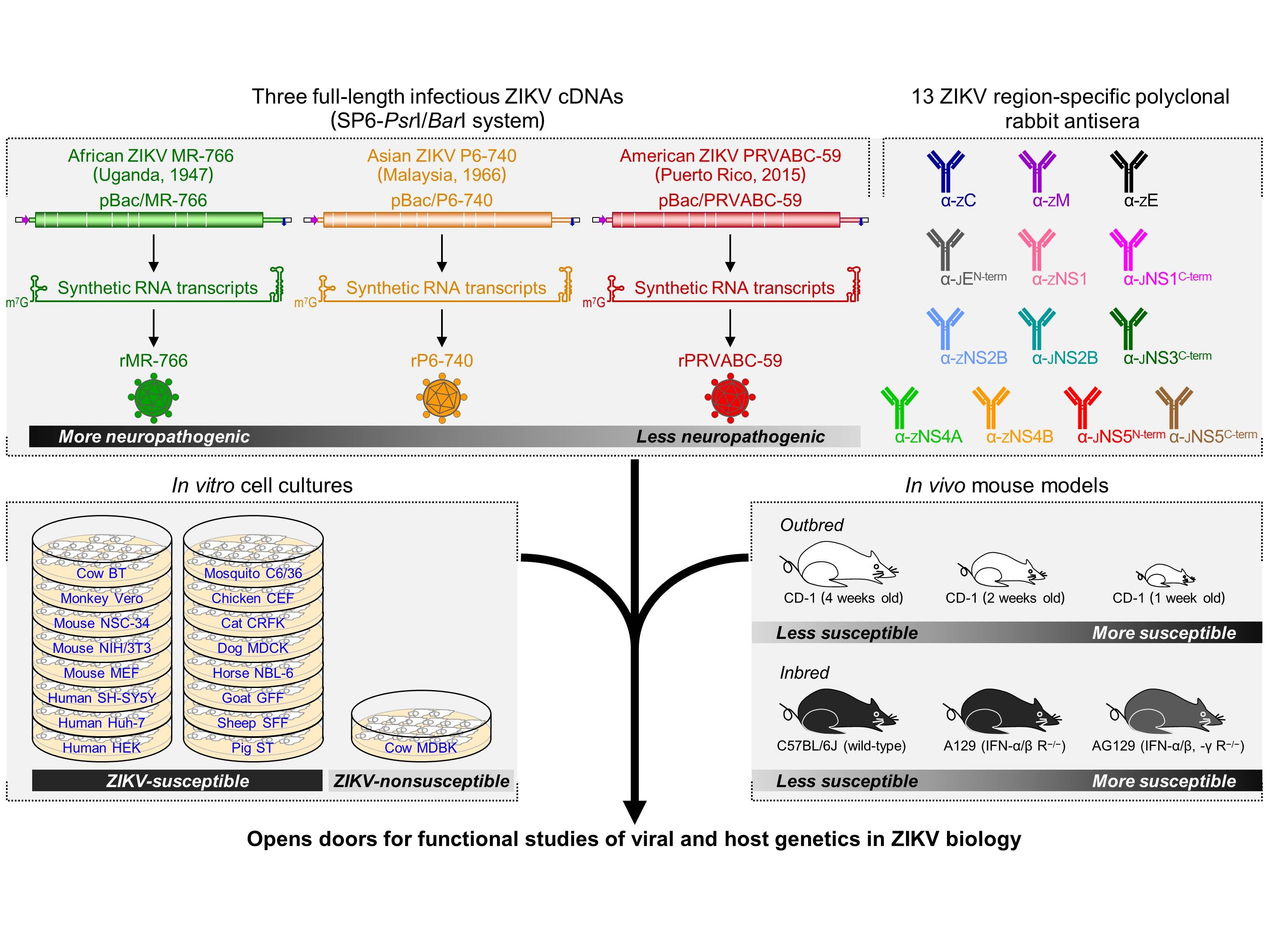Comparative Functional Genomics and Immunological Tools for Zika Virus Research
Many people infected with Zika virus (ZIKV) won’t have symptoms or will only have mild symptoms. The most common symptoms of Zika are fever, rash, headache, joint pain, red eyes and muscle pain. People usually don’t get sick enough to go to the hospital, and they very rarely die of Zika. Zika infection during pregnancy can cause serious birth defects and is associated with other pregnancy problems.
To explore the importance of viral and host genetic variations on the outcome of the virus, Utah State University researchers created a unique panel of three cDNA clones. This research opens the door to create vaccines and therapeutics for the treatment of ZIKV.
Problem
The functional study of viral and host genetic variations of ZIKV is difficult, thus discouraging the creation of vaccines and therapeutics against ZIKV.
Solution
Utah State researchers developed two important tools to create a platform for the design of vaccines and therapeutics.
The first tool is a panel of three bacterial artificial chromosomes. Each artificial chromosome contains a full-length infectious cDNA for each of the divergent ZIKV strains. The second tool is a collection of 13 rabbit antisera capable of detecting ZIKV gene products and related species.
The first tool manipulates viral genomic RNA to generate recombinant or mutant ZIKV. The second tool is capable of detecting almost all ZIKV proteins.
Benefits
The technology provides a platform to further the study of vaccines and therapeutics against ZIKV. The technology does the following:
- Provides a system to study the viral and host genetics of ZIKV replication and pathogenesis
- Creates a platform for the design and study of vaccines and therapeutics
- Uses a bacterial artificial chromosome as a cloning vector to overcome the genetic instability of the cloned ZIKV
Applications
The technology provides two unique tools to further the study of ZIKV treatments. The application of this technology in the biotech industry could advance the study of ZIKV treatments and aid in the fight against the virus.

Contact
Questions about this technology including licensing availability can be directed to:
Christian S. Iverson, MBA
Executive Director, Technology Transfer Services
(435) 797-9620 christian.iverson@usu.edu
USU ID C18027
Development Stage
TRL 3

